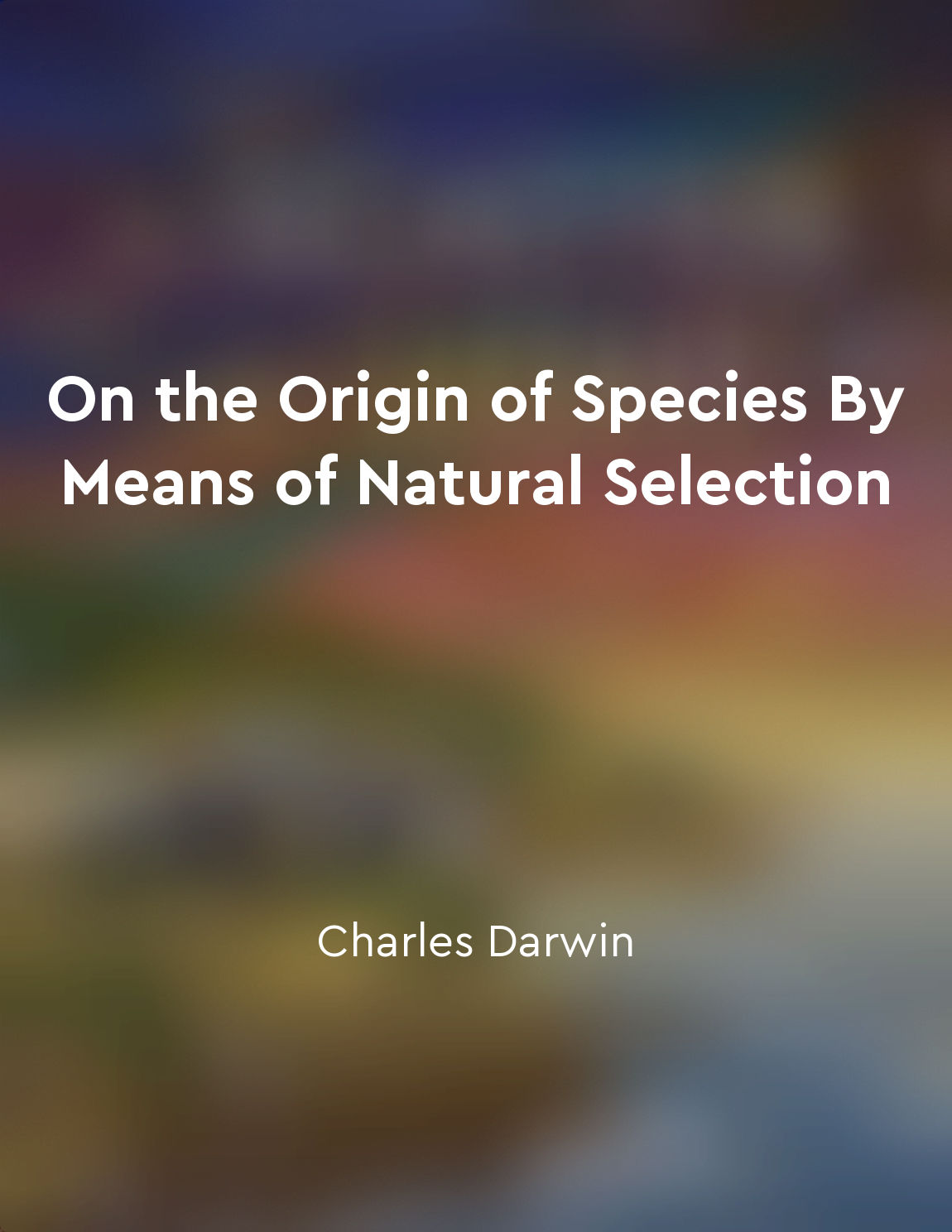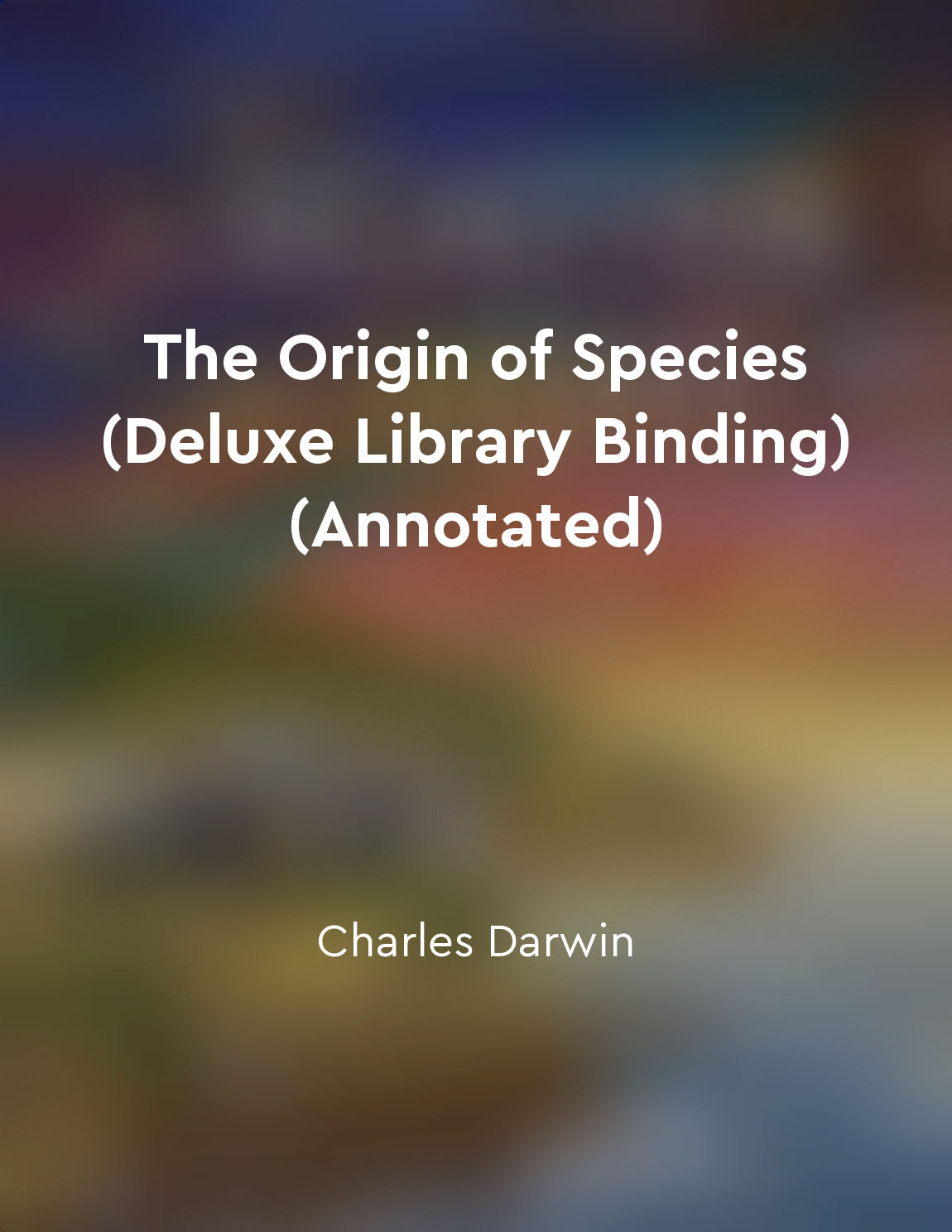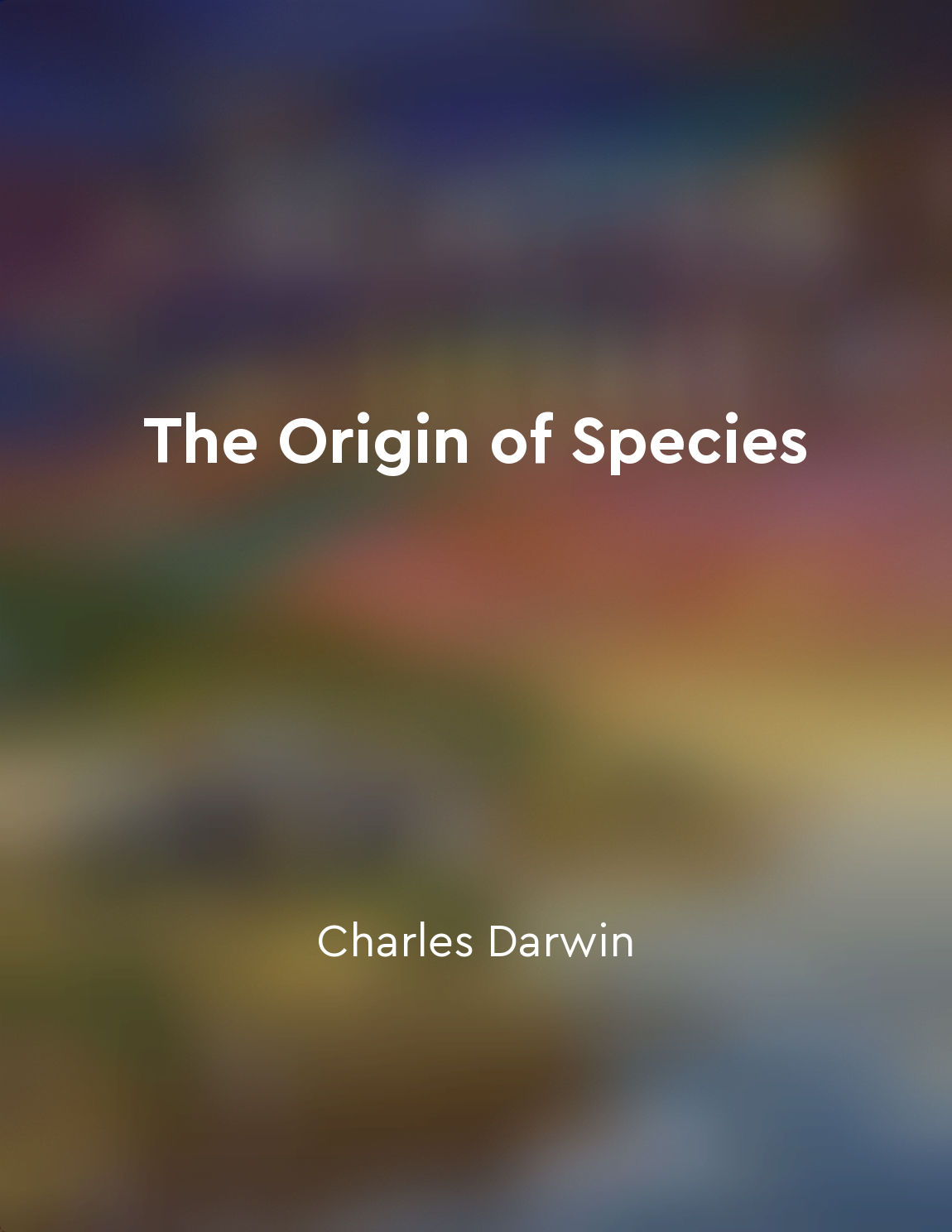Survival of the fittest determines evolutionary success from "summary" of The Origin of Species by Charles Darwin
The process of natural selection is a key driver in the evolution of species. It is the mechanism by which certain traits become more prevalent in a population over time. Those individuals with advantageous traits are more likely to survive and reproduce, passing on those traits to future generations. This leads to the gradual accumulation of beneficial traits in a population, ultimately resulting in the adaptation of that population to its environment. The concept of "survival of the fittest" is central to the theory of natural selection. It refers to the idea that individuals with traits that make them better suited to their environment are more likely to survive and reproduce. These individuals are said to be "fit" in the evolutionary sense, as their traits give them a competitive edge in the struggle for survival. Over time, as individuals with advantageous traits outcompete those with less favorable traits, the frequency of those advantageous traits in the population increases. This process of differential survival and reproduction leads to the gradual change of populations over generations, as new traits become more common and old traits are lost. The ultimate result of this process is the adaptation of populations to their environments. Those populations that are best suited to their surroundings are more likely to thrive and persist, while those that are less well-adapted may struggle to survive. In this way, natural selection drives the evolution of species, shaping them to better fit their ecological niches. It is important to note that natural selection does not operate with a specific goal in mind. It is a blind and impersonal process, driven by the interactions between individuals and their environments. The traits that confer a survival advantage in one environment may be disadvantageous in another, and what is considered "fit" can vary depending on the context.- The concept of survival of the fittest is a powerful framework for understanding the process of evolution. By highlighting the role of differential survival and reproduction in shaping populations over time, it provides a clear and logical explanation for the diversity of life on Earth.
Similar Posts
Specialization increases productivity and efficiency
Specialization is a fundamental concept that drives human progress and innovation. By focusing on a specific task or skill, ind...

Hormones control growth and development
Hormones, chemical messengers produced by the endocrine system, play a crucial role in controlling growth and development. Thes...
The role of religion and belief systems in human history
Religion and belief systems have played a significant role in shaping human history. The belief in supernatural beings and high...

Importance of geological time scales
Geological time scales play a crucial role in understanding the process of evolution. Without the vast expanse of time provided...

Specialization for specific environments
The adaptation of organisms to their environment is a key principle in understanding the diversity of life on Earth. As individ...

Natural selection acts on heritable traits
In the struggle for existence, it is the variation in traits that can be inherited which allows some individuals to survive and...
Algorithms can mimic evolutionary processes
The concept that algorithms can mimic evolutionary processes is a fascinating one. The idea that complex biological phenomena c...

Specialization for specific environments
The adaptation of organisms to their environment is a key principle in understanding the diversity of life on Earth. As individ...


